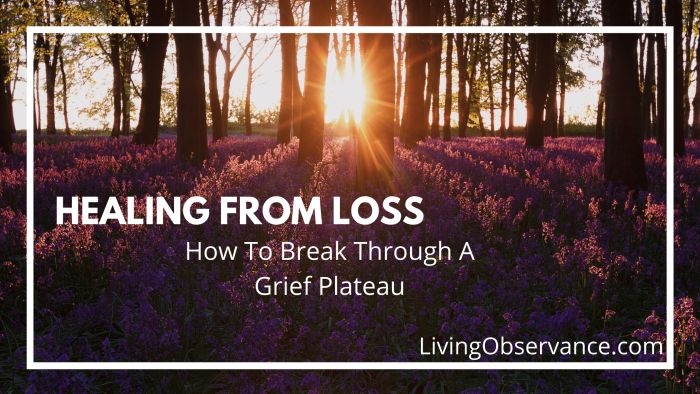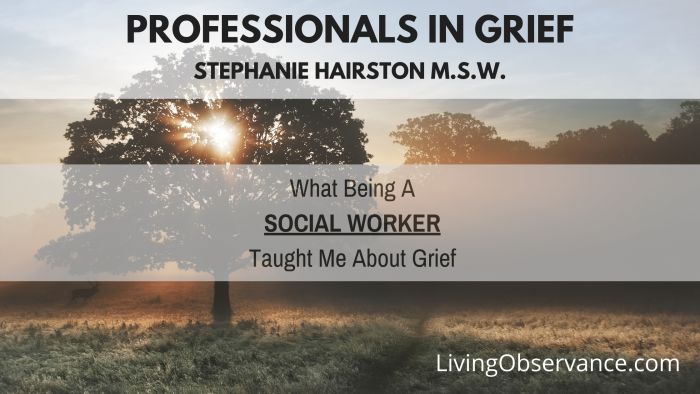What Is The Best Way To Heal From Loss?
Healing from a loss begins with practicing gratitude and generosity at every opportunity. There have been several studies that show direct health benefits that are tied to generosity. Some benefits include finding a sense of purpose, feeling more in control, lower stress, and lower blood pressure. When it comes to practicing gratitude, Douglas Wood said, “The heart that gives thanks is a happy one, for we cannot feel thankful and unhappy at the same time.”
At a Glance
- Personal Story: Stuck In Grief
- The Importance of Practicing Generosity and Gratitude
- How Gratitude Heals
- How Generosity Heals
- Examples
- Conclusion
Personal Story: Stuck In Grief
When death confronts us, our entire sense of reality can be upended. The relationships, projects, and plans that we have been secure in for so many years are abruptly ended and ripped away from us. No one asks If we are ready. One day, with little or no notice, a source of our joy is unilaterally stripped away. It can leave us feeling helpless, insecure, lacking/questioning our purpose, and if you are like me, nihilistic. After all, if death can take our loved one so quickly, then surely everything else can be taken from us just as easily. I was stuck in this mindset far longer than I’d like to admit.
About three years after my mom passed away, I started to feel like I was hitting a grief plateau that I’d never be able to break through. If grief were quicksand, when I lost my mom, it felt like I was up to my neck with quicksand. As time continued to pass, I was slowly getting better, and I almost got all the way out. It was just my ankles that were still stuck, but even if I could pick up my foot out of the quicksand, no matter where my next step was, I would start sinking again and ended up right back where I was.
On one of my darkest days, I had to find a way to pull myself together enough to accomplish all of the daily errands. I only had one task left on my to-do list. As I was driving, I felt my stomach cramp. I remembered that I didn’t eat dinner last night and I hadn’t eaten all day today. I drove to the closest fast-food restaurant and went through the drive-through. I couldn’t bear going inside and potentially seeing somebody that I knew. I gave my order and drove up to the window to pay. As I handed my card to the cashier, she smiled and pointed to the car in front of me. She told me that my order had already been covered. I was caught off guard for a few seconds before a warm feeling of thankfulness covered me. A total stranger performed a random act of kindness and helped me turn a corner on my grief journey.
Generosity and Gratitude Are Contagious
I was inspired by the stranger’s generosity towards me and I wanted to repay the kindness. When I was out of town on a business trip, I decided to go to a Perkins for dinner. I saw a family of five sitting at a table across the restaurant. The kids were laughing and having a good time, but the parents’ faces were covered with worry and stress. I called my waiter over and told him that I wanted to pay for that family’s meal, but I don’t want him to inform them that I was the one that paid for it. Shortly after, I saw the husband call their waitress over to bring the check. As their waitress explained that the meal had already been paid for, the husband looked around the restaurant before looking at his wife. After having frowns on their faces for the entire meal, they finally had gentle smiles make an appearance on their faces. For the first time in a long time, I finally had a feeling of happiness that wasn’t weighed down by guilt, stress, or worry.
The Importance of Practicing Generosity and Gratitude
One of the most significant epidemics sweeping the world right now is a lack of appreciation. When we take a minute to look at all of the interactions of our day-to-day lives, we will start to notice how much we depend on other people. Some of those people are paid to help us, but all of them are still giving their time to make our lives easier. It’s easy to think that since they’ve always done something for us, they will continue to do it. This mindset is one of the reasons that we can hit a grief plateau.
Gratitude and generosity are muscles that we have to consciously exercise to make them stronger. The more we use these muscles, the more we will recognize how much help others give us and how we can begin to help others. In the opening paragraph of this post, I mentioned one of my favorite grief quotes by author Douglas Wood, “the heart that gives thanks is a happy one, for we cannot feel thankful and unhappy at the same time.” When we start to think about gratitude and generosity as muscles tied directly to our happiness, it’s easy to see how important it is that we practice as much as possible.
I first stumbled upon generosity and gratitude as a shortcut towards happiness because of that driver in front of me at the drive-through. That person didn’t know what I was going through, just like I don’t know what that family of five at Perkins was going through, but none of it matters. When I paid for that family’s meal, I wasn’t doing it for them; I was doing it for myself. When I could do something to make another person’s life a small increment easier, I made my own life a small increment more meaningful and satisfying. Generosity and gratitude are contagious because everyone involved is better for it.
In a study from 2015, researchers asked 119 young women to write in a gratitude diary where they express gratitude towards previously unappreciated people and things in their lives. This study found that participants had increases in optimism, well-being, sleep quality, and decreased diastolic blood pressure. So science and personal experience seem to demonstrate that gratitude and generosity are excellent treatments for a variety of problems. While gratitude and generosity go hand-in-hand, each one offers different benefits that will go into below.
How Gratitude Heals Grief
Psychotherapist Amy Morin wrote an article for Psychology Today called 7 scientifically proven benefits of gratitude. In the article, she does a great job of explaining each of these benefits in more detail and referencing the studies that provided the information.
The seven health benefits of gratitude are:
- Gratitude opens the door to more relationships
- Gratitude improves physical health
- Gratitude improves psychological health
- Gratitude enhances empathy and reduces aggression
- Grateful people sleep better
- Gratitude improves self-esteem
- Gratitude increases mental strength and plays a significant role in overcoming trauma
How Generosity Heals Grief
According to the Mayo Clinic, volunteering has six major health benefits, and for the purposes of this article, I’m going to categorize volunteering as a form of generosity.
The six health benefits of volunteering are:
- Volunteering decreases the risk of depression
- Volunteering gives a sense of purpose and teaches valuable skills
- Volunteering helps people stay physically and mentally active
- Volunteering may reduce stress levels
- Volunteering may help you live longer
- Volunteering helps you meet others and develop new relationships
Small Ways To Practice Gratitude and Generosity
If ANYONE does something to make your life easier, look them in the eye and say “Thank you” with a smile on your face. Even if the person that is helping you is only doing their job, you should still take a moment to recognize them for the service they are providing to you. Think about a waitress/waiter, car driver, delivery person, hotel staff, cashiers, gas station attendants, barbers/hairstylists, plumbers/electricians, even friends and family calling to check on you. All of these people are using their time to make your life just a little bit easier.
I know it will be hard while you are still deep in the throes of grief, but you will start feeling better almost immediately after showing gratitude and generosity. That said, don’t get carried away with being too generous financially! One of the grief traps that I fell into was Grief Spending (Retail Therapy to dull pain associated with grief).
Generosity and Gratitude Exercises:
- Thank someone that provides a service to you
- Tell the manager how great their employee is
- Give a larger than normal tip to the wait staff
- Volunteer to help a local organization
- Call someone to tell them how much you appreciate your relationship with them
- Make a donation to charity
- Mentor someone
- Hold the door open for somebody else
- Prepare some food for someone you care about and surprise them with it
- Donate blood
- Keep a gratitude Journal
- Try not to be “too picky”
- Do something with a person you care about that they want to do (even if it’s not your favorite activity)
Conclusion:
If you’re like me, and you feel like you reached a plateau while healing after a loss, I recommend that you take a small step and try to practice generosity and gratitude the next time it presents itself to you. If you go to a sit-down restaurant, make sure that you show gratitude to your server with a verbal thank you. If you are feeling generous, ask for the manager and report your satisfaction with the excellent service! These actions are the first step that will help break you out of your grief plateau and help you continue moving towards recovery.
If you found this article helpful, please share it on your favorite social media platform, leave a comment below, and sign up for the newsletter to be notified about future posts. Recovering from losing a loved one is extremely challenging, but it’s much easier with the help of those that have been down that road before. What do you think? Did you find that gratitude and generosity helped on your grief journey? Was there something different that you did to help break through your grief plateau?



